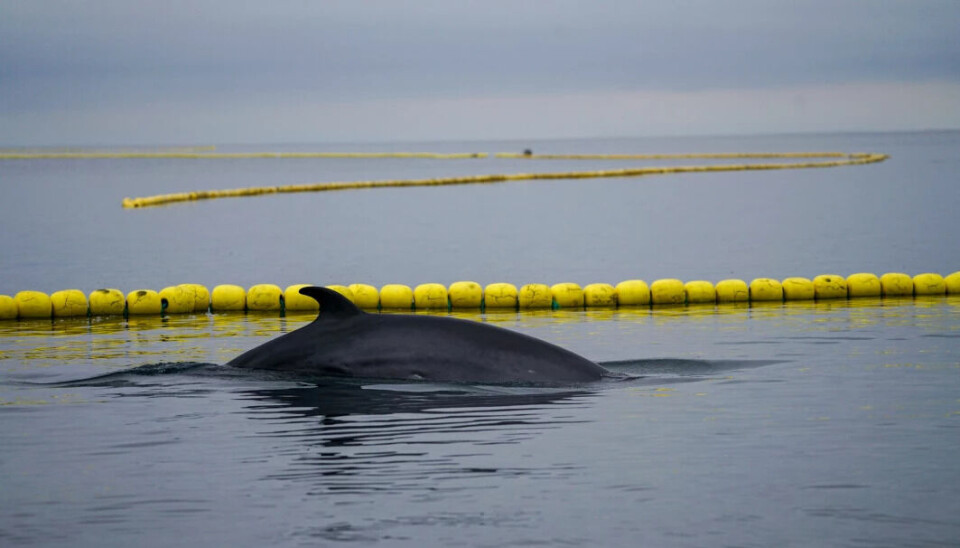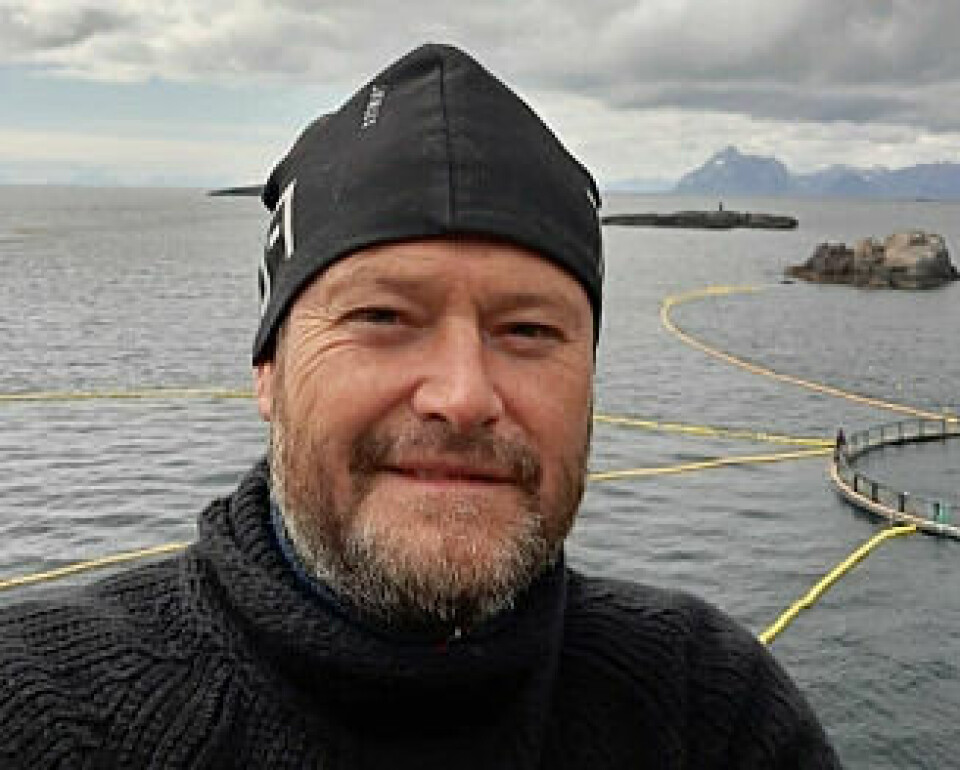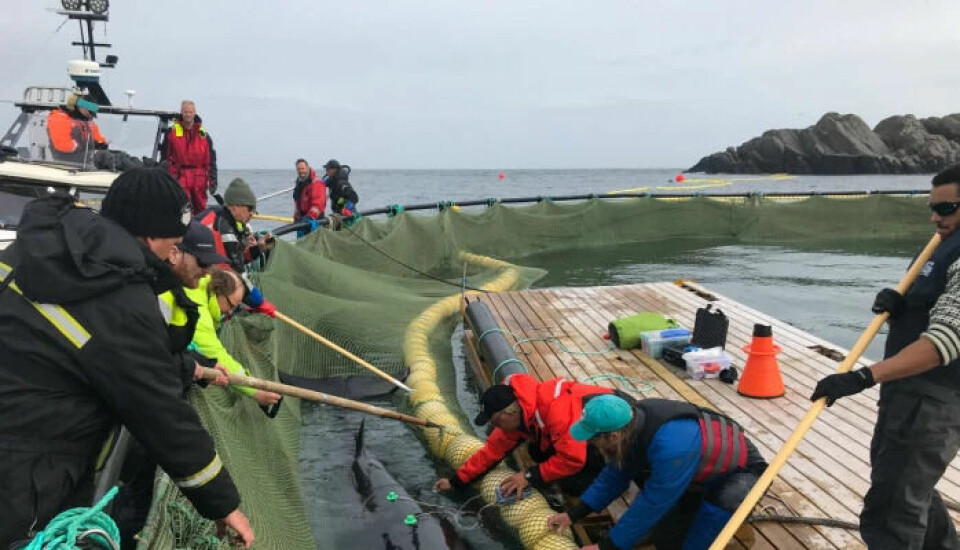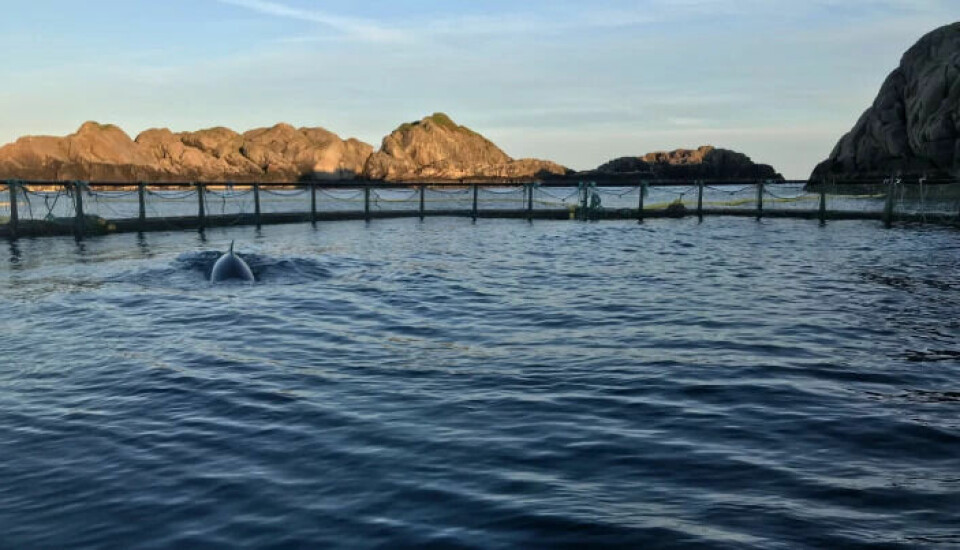
How to measure a whale’s hearing
Researchers to find out whether whales are bothered by noise from underwater mining, oil drilling and ship traffic.
“It is entirely possible, but a rather difficult process,” Petter Kvadsheim, chief researcher at the Norwegian Defense Research Establishment, says.
Earlier this summer, Kvadsheim and his research group tried to examine the hearing of baleen whales.
We know very little about what this type of whale can hear.
What we do know, however, is that we humans make a lot of noise. Everything from undersea mining and drilling for oil to sonar and general ship traffic can disturb these whales.

“Some previous studies have exposed baleen whales to seismic and sonar, and have documented that the whales hear these sounds, but we don’t know how sensitive they are to it,” Kvadsheim says.
Toothed whales, like dolphins and orcas, have been kept in captivity for quite a long time and it has therefore been possible to study them, Kvadsheim tells us.
However, these animals have completely different prerequisites for hearing. Dolphins, for example, communicate at much higher frequencies than the larger baleen whales. It is therefore likely that a dolphin and a minke whale, a species of baleen whale, have different hearing.
The researchers wanted to investigate this and made some progress without quite reaching their goal.
Whaling
“We actually use a technique developed to test the hearing of infants. We attach electrodes to the whale's head and play different notes. The electrodes can then measure the signals that are sent from the sensory cell in the ear to the brain. This lets us see if and when the ears pick up sound,” says Kvadsheim.
He clarifies that the sounds played for the whales are not excessively loud; the sound is only just audible to them.
With their plan ready, it was just a matter of getting hold of a whale to examine.
According to Kvadsheim, the first step is to catch a whale that can be firmly contained whilst still underwater. Such big whales are incredibly heavy and can have problems above water.
“First we lead the whales into a large pool and then into a slightly smaller net,” he says.

Stressed whale
In June, the researchers managed to get a minke whale completely inside the net and were ready to examine it.
However, they had to stop the experiment when the veterinarian present was unsure of the whale's state of health.
“The whale was completely paralysed when we had it in the net. Such reactions are not uncommon in diving animals such as whales. It is usually caused by their diving reflex,” says Kvadsheim. “This time we had to release it, but it may be easier next time with another animal or if we proceed a little more slowly than we did now, and the whale gets a little more time to adapt.”
The researchers plan to work further towards measuring baleen whales' hearing ability next summer.

Mining leads to trouble
Another research group has recently published a study on sound pollution from deep-sea mining.
According to the researchers, the sound can be heard over several hundred kilometres away and create a kind of ‘cylinder of sound’, The Guardian newspaper writes.
“The deep-sea houses potentially millions of species that have yet to be identified, and processes there allow life on Earth to exist,” Travis Washburn, one of the researchers behind the study, tells The Guardian.
The study follows concerns about the several deep-water mines that are to be established in the Pacific Ocean.
For example, in the Clarion-Clipperton Zone in the sea between Mexico and Hawaii, a number of companies are now investigating whether it is possible to operate mines on the seabed, according to The Guardian.
The researchers behind the study believe that this type of mining must be further regulated. They point out that they would prefer to see that work is only done in one or two mines at a time.
This is because they do not know the consequences this type of noise can have on marine life.
———
Translated by Alette Bjordal Gjellesvik.
Read the Norwegian version of this article on forskning.no
References:
Espen Hofoss Forskere fanget hval levende i Lofoten (Scientists caught live whale in Lofoten), Norwegian Defence Research Establishment, 2022.
Karen McVeigh One deep sea mine could send noise 500km across the ocean – report, The Guardian, 2022.
Williams et al. ‘Noise from deep-sea mining may span vast ocean areas’, Science, 2022. DOI: 10.1126/science.abo2804 Abstract.
































